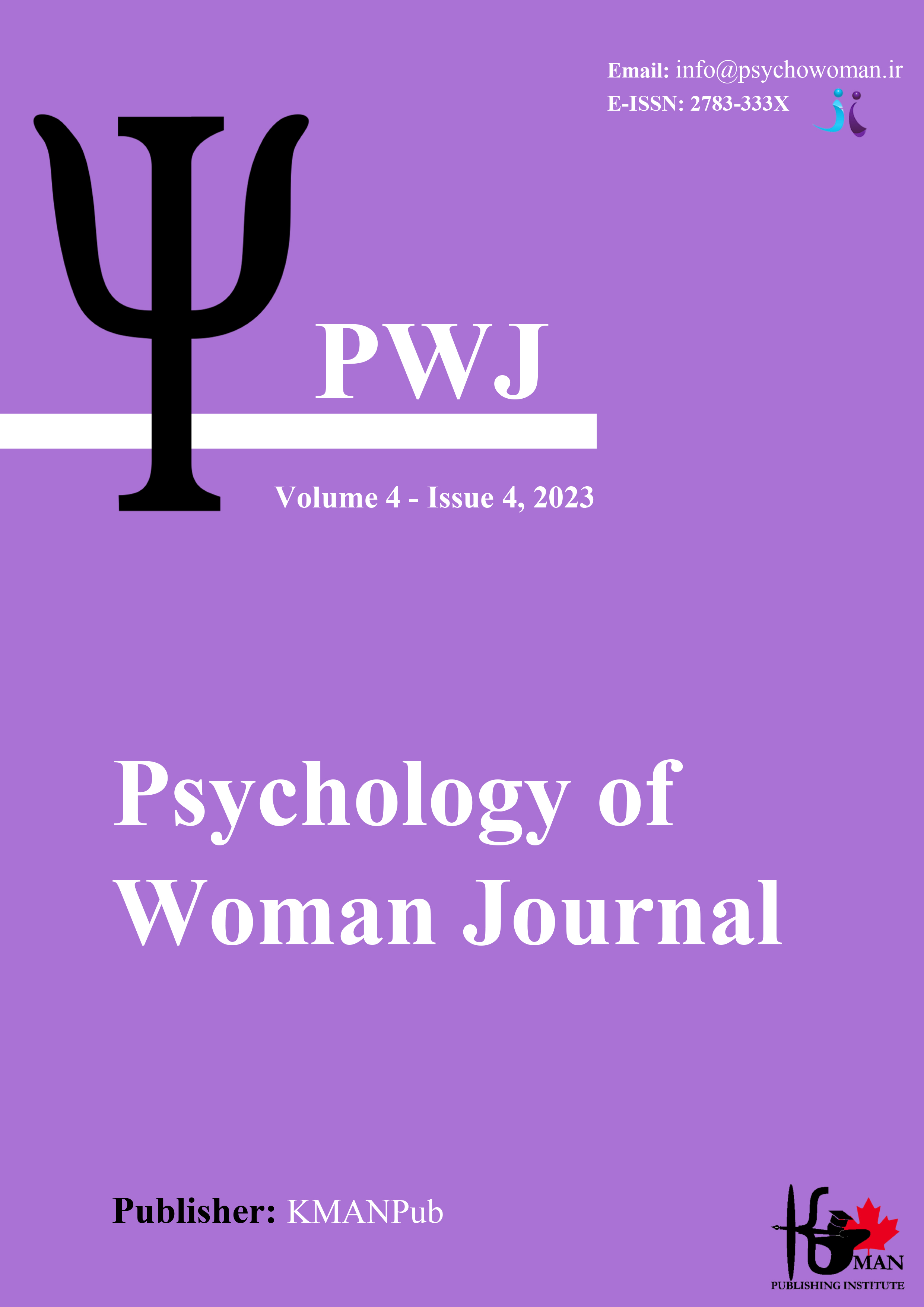Comparison of the Effectiveness of Cognitive Behavioral Therapy and Compassion-Focused Therapy in Improving Rumination and Enhancing Emotional Regulation in Women with the Experience of Marital Infidelity
Abstract
Objective: One of the harms that put families at risk of disintegration is the phenomenon of marital infidelity. The present study compared the effectiveness of cognitive behavioral therapy and compassion-focused therapy in improving rumination and enhancing emotional regulation in women who have experienced marital infidelity.
Materials and Methods: This was a quasi-experimental study with a pre-test-post-test-follow-up design and a control group. The study population included women with experiences of marital infidelity, who sought help from counseling and psychotherapy centers and clinics in Tehran in the year 2021. From the mentioned population, 45 women with experiences of marital infidelity were selected based on the entry criteria of the study and were randomly assigned to two experimental groups and one control group (each group consisting of 15 individuals). The first experimental group received cognitive behavioral therapy intervention, and the second group underwent compassion-based therapy. The control group did not receive any intervention. Data were collected using the Garnefski and Kraaij Cognitive Emotion Regulation Questionnaire (2006) and the Nolen-Hoeksema et al. Ruminative Responses Scale (1999). Data were analyzed using the analysis of variance with repeated measures and SPSS software version 22.
Findings: The results showed that emotional regulation in both the cognitive-behavioral and compassion therapy groups was higher at the post-test stage than at the pre-test, and the scores of rumination in the two groups were lower at the post-test stage than at the pre-test (p < 0.01). Also, the comparison of the two experimental groups showed that the scores of emotional regulation and rumination variables in both cognitive-behavioral and compassion therapy groups significantly differed from each other (p < 0.01).
Conclusion: It can be concluded that cognitive-behavioral therapy had a greater impact on improving emotional regulation and rumination in women compared to compassion-focused therapy.
Downloads
Downloads
Published
Issue
Section
License
Copyright (c) 2023 Parisa Karami, Mohammad Hassan Ghanifar, Ghasem Ahi (Author)

This work is licensed under a Creative Commons Attribution-NonCommercial 4.0 International License.



















